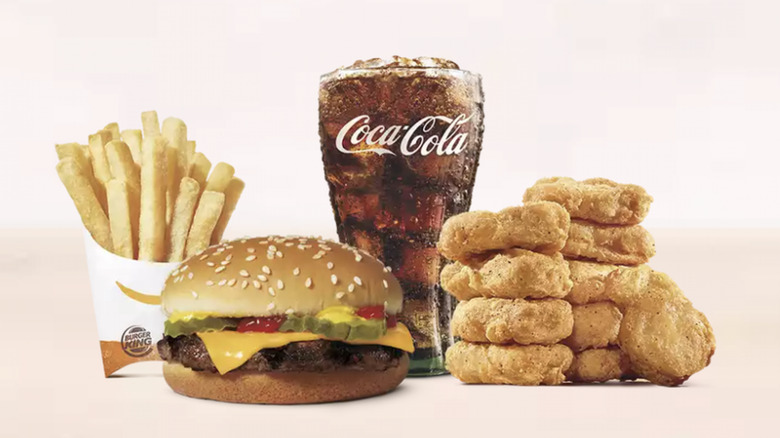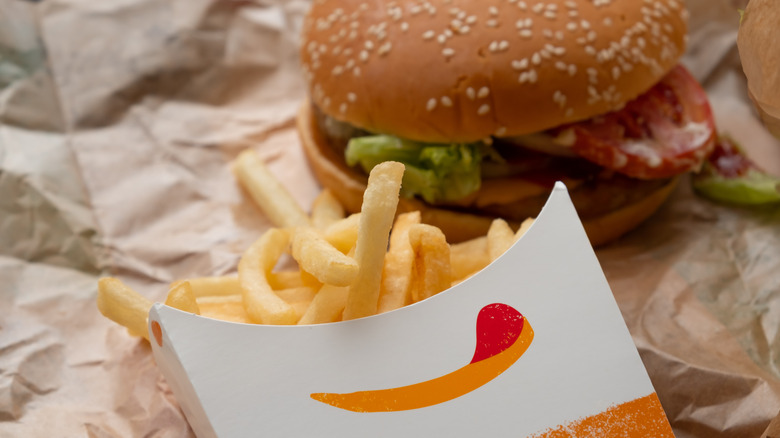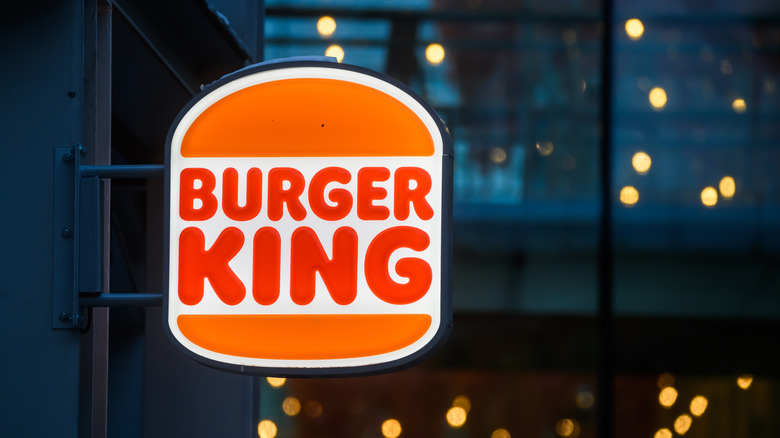Burger King's New $2 Snack Box Is Going To Cost You A Lot More Than Two Bucks
Burger King has launched a new "snack box" that sounds far too good to be true: 10 chicken nuggets, medium fries, a cheeseburger, and a small soda for the low, low price of $2. That's right: two dollars. How can food be so cheap? People on X, formerly known as Twitter seem have no idea and are freaking out about it.
Fortunately for all you beautiful and highly intelligent Takeout readers out there, I've spent the majority of my career working in the food industry, and can give you a general inkling of what's going on with this suspiciously priced meal. While I don't have any insider knowledge of Burger King's kitchens, I'm 87% sure their food, no matter how cheap, is not made out of cardboard, asbestos, monkey meat, deer ankles, or anything meme-able.
How is Burger King's snack box so cheap?
To begin: fast food chains buy cheap meat from, shall we say, "dubious" suppliers, and since they buy it in massive volumes, they get it pretty substantial discounts on it. Even still, those wholesale prices aren't low enough to make a profit on a measly two dollars. This promo is what we call a loss leader: a way to get people in the door in hopes that they'll end up buying more stuff (we all know a small soda isn't going to be enough to wash down all that tasty BK-brand sodium), or, even better, develop a such a taste for the stuff that they keep coming back for more. Most of you probably know about this already, since it's one of the oldest sales tricks in the book. What you may not know, though, is the loss leader has gotten a pretty major upgrade that's not as much about upselling extra items as it is about becoming so ingrained in your life that you can never, ever escape it.
Burger King's $2 Snack Box comes with a caveat that you're probably very familiar with by now: in order to get the deal, you need to order it off the official BK app. That app tells Burger King a lot more than your name and email address; it knows what foods you like, how often you order, what deals and promotions catch your eye, and a whole slew of other things—it's the best market research a company could ever hope for, and it's being freely volunteered by customers.
A closer look at Burger King's policies
How this information is used varies between companies, which you can learn more about by actually reading that terms of service agreement each app makes you click "okay" on, and knowing how to translate all that legal mumbo jumbo into something understandable. According to Burger King's privacy policy, the company uses your info to:
"Operate and manage our stored-value card program; Provide and manage the products and services you request; Communicate with you about our products, services, and promotions; Deliver targeted advertising, promotions, and offers; and understand our customers so that we can develop and improve our customer service, promotions, products, and services."
Burger King also states that its allowed to share your information—which, again, is way more than your name and email address—with its affiliates (like Tim Horton's and Popeyes), business partners, service providers, social media services, companies that provide content, advertising, or functionality; and "other parties when required or permitted by law, as necessary to protect our users, or in connection with a corporate transaction." You should also know that, according to the company's Terms of Service, Burger King is allowed to change this policy at any time, and it's up to you to keep on top of all that.
"Your use of the Services after we post modifications to the Terms means that you accept the modified Terms," it reads. "Your use of the Services means that you agree to be bound by the Terms. Do not use the Services if you do not accept the Terms."
Does this mean you shouldn't download BK's (or any restaurant's) official app? Of course not—a good deal is a good deal, and unless you're reading this article under a massive shroud of security and secrecy, "The Man" probably knows everything about you, anyway. (Hi, Google!) It's merely a reminder that when things are dirt cheap, they're cheap for a reason that more than likely doesn't involve monkey meat. Big Brother would never play you like that.


